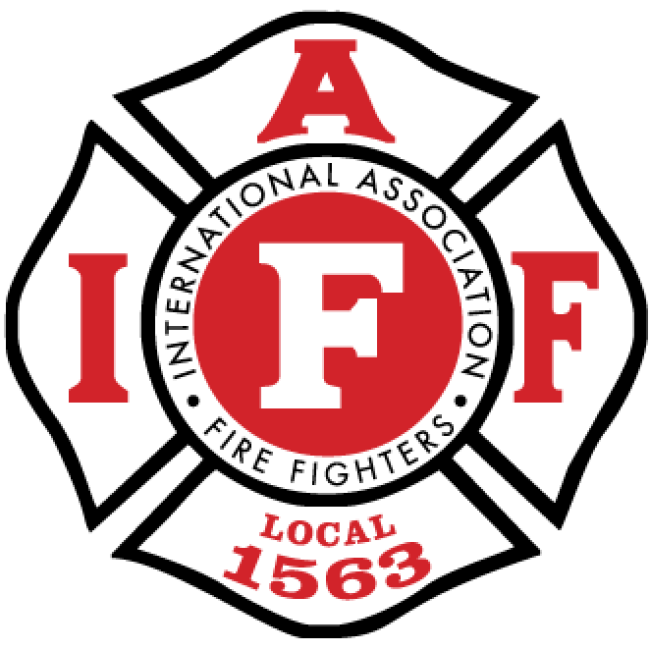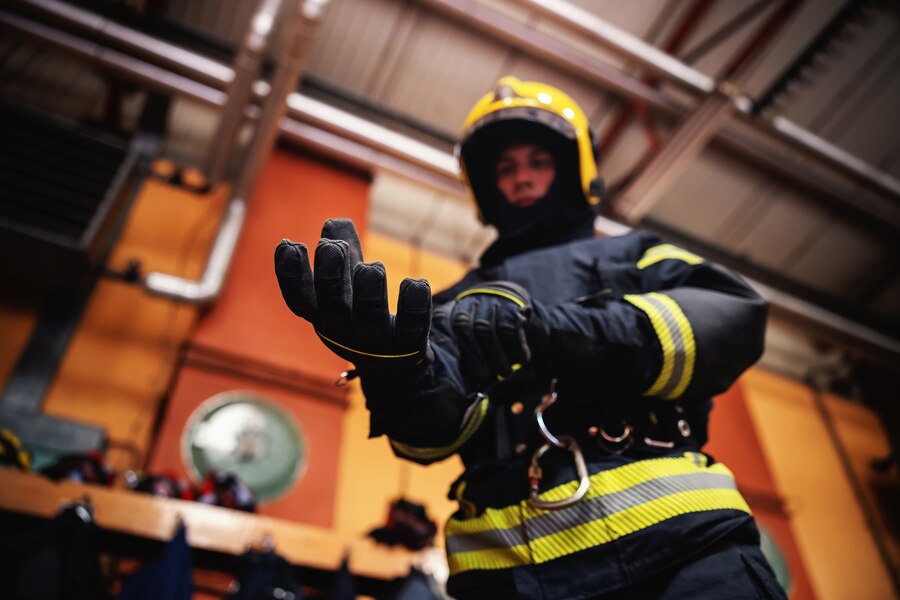Fire inspectors play a crucial role in ensuring public safety by identifying and mitigating fire hazards in buildings and structures. A fire inspector must possess unique qualities and skills to excel in this critical position. From a solid educational background to strong attention to detail, effective communication, and problem-solving abilities, successful fire inspectors are well-rounded professionals dedicated to upholding fire safety regulations and protecting lives and property. This blog will delve into the essential qualities that make a fire inspector successful. Let’s explore further!
Importance of Fire Inspectors in Ensuring Public Safety
Fire inspectors are essential in safeguarding public safety by thoroughly inspecting buildings and structures to identify potential fire hazards. They are crucial in preventing fires and ensuring buildings meet fire safety regulations to protect occupants and property. By enforcing fire codes and regulations, fire inspectors play a vital role in minimizing the risk of fires and ensuring that emergency response procedures are in place.
Their expertise and diligence contribute to creating a safer environment for everyone, helping to prevent the devastating effects of fires and ultimately saving lives. Fire inspectors are integral to maintaining the overall safety and well-being of the community.
Educational Requirements
To become a fire inspector, individuals typically need a combination of education, training, and experience. Most employers require a high school diploma or equivalent and post-secondary education in fire science, engineering, or a related field. Some positions may also require certification as a fire inspector or completion of specific fire inspection and investigation courses.
Additionally, gaining experience as a firefighter or in a related field can be beneficial in pursuing a career as a fire inspector. Continuing education and staying current on fire safety regulations and codes are also essential for fire inspectors to carry out their duties and ensure public safety effectively.
Experience in the Field
Experience in the field is crucial for fire inspectors to assess fire hazards effectively, enforce regulations, and ensure public safety. Hands-on experience in firefighting or related fields provides valuable knowledge of fire behavior, emergency response procedures, and building construction techniques. This experience helps fire inspectors identify potential fire hazards, evaluate safety measures, and make informed decisions to protect occupants and property.
Practical experience also enhances communication skills, problem-solving abilities, and the ability to work effectively in high-pressure situations. Additionally, exposure to various fire incidents and building types gives fire inspectors a comprehensive understanding of fire safety challenges and solutions, making them more effective in protecting the community from the devastating effects of fires.
Attention to Detail
Attention to detail is critical for fire inspectors as they must thoroughly inspect buildings, equipment, and systems to identify potential fire hazards and ensure compliance with safety regulations. By paying close attention to even the most minor details, fire inspectors can pinpoint issues that may pose risks to occupants and property. This includes examining fire alarms, sprinkler systems, electrical wiring, building materials, and storage practices to ensure they meet safety standards.
Attention to detail also helps fire inspectors document findings accurately, communicate effectively with building owners and occupants, and develop appropriate recommendations for remediation. By being meticulous in their inspections and reports, fire inspectors play a vital role in preventing fires and protecting public safety.
Knowledge of Fire Codes and Regulations
Fire inspectors must comprehensively understand fire codes and regulations to effectively enforce safety standards and ensure compliance within buildings and facilities. This knowledge includes familiarity with local, state, and national fire codes, industry standards, and best practices. Fire inspectors must also be able to interpret and apply these codes to various building types, occupancy classifications, and fire protection systems.
By staying up-to-date with changes in regulations and advancements in fire safety technology, fire inspectors can make informed decisions and recommendations to mitigate fire risks and protect occupants and property. Understanding fire codes and regulations is crucial for fire inspectors to identify deficiencies, enforce compliance, and promote a community safety culture.
Communication Skills
Practical communication skills are essential for fire inspectors to interact with building owners, occupants, colleagues, and other stakeholders. Fire inspectors must be able to clearly explain fire code requirements, inspection findings, and recommendations in a way that individuals easily understand without a background in fire safety. They must also be able to listen actively, ask questions, and address concerns to ensure all parties are informed and engaged in improving fire safety.
Additionally, fire inspectors must be able to write detailed inspection reports, document findings accurately, and communicate effectively with other emergency responders and regulatory agencies. Strong communication skills help fire inspectors build relationships, gain cooperation, and promote a collaborative approach to fire prevention and safety.
Problem-Solving Abilities
Fire inspectors need problem-solving skills to identify fire hazards, assess risks, and determine the most effective solutions to mitigate dangers and ensure compliance with fire codes and regulations. They must be able to analyze complex situations, consider various factors such as building construction, occupancy types, and fire protection systems, and develop practical and cost-effective strategies to address fire safety concerns.
Fire inspectors must also be able to think quickly and adapt to changing circumstances during emergencies, such as fires or disasters, to protect lives and property effectively. Problem-solving solid abilities are critical for fire inspectors to make informed decisions, prioritize tasks, and implement preventative measures to reduce fire risks and enhance public safety.
Physical Fitness
Physical fitness is essential for fire inspectors as they may need to climb ladders, crawl through confined spaces, lift heavy equipment, and walk long distances during building inspections. Maintaining good physical condition helps fire inspectors perform their duties safely and effectively, especially during emergencies when quick and agile movements are necessary.
Fire inspectors should exercise strength training and cardiovascular activities regularly to ensure they have the stamina, strength, and flexibility needed to handle the job’s physical demands. Staying physically fit enhances job performance, minimizes the risk of injury, and promotes overall health and well-being.
Teamwork and Collaboration
Teamwork and collaboration are essential qualities for a successful fire inspector. Fire inspectors often work closely with other emergency responders, fire department personnel, and building owners to address fire safety concerns effectively. By fostering positive relationships and open communication, fire inspectors can coordinate efforts to ensure that buildings are up to code and safe for occupants.
Collaboration allows for sharing of knowledge and resources, leading to more comprehensive fire safety inspections and solutions. Working as part of a team enables fire inspectors to leverage diverse perspectives and expertise, ultimately enhancing their ability to protect the community from potential fire hazards.
Time Management Skills
Time management skills are critical for a successful fire inspector. With a busy schedule of inspections, reports, and follow-up actions, effective time management ensures that fire inspectors can prioritize tasks, meet deadlines, and maintain high productivity. Time management allows fire inspectors to allocate sufficient time for thorough inspections, documentation, and communication with stakeholders, ultimately ensuring that fire safety regulations are upheld and potential hazards are addressed promptly.
By effectively managing their time, fire inspectors can maximize their efficiency and effectiveness in protecting lives and property from the dangers of fire incidents. Prioritizing tasks and allocating time effectively is critical to a successful fire inspector.
Adaptability
Adaptability is a crucial quality for a fire inspector due to the constantly changing nature of their work environment. Fire inspectors often encounter unexpected challenges, such as changes in building codes, new technology, or emergencies that require them to adjust their approach quickly. Being adaptable allows fire inspectors to respond effectively to these changes, think on their feet, and find innovative solutions to complex problems.
Adaptability enables fire inspectors to remain resourceful and flexible, whether navigating unfamiliar buildings, adjusting inspection techniques, or working in different weather conditions. By being open to change and willing to learn new skills, fire inspectors can successfully navigate the dynamic and ever-evolving field of fire safety inspection.
Dedication to Public Safety
Dedication to public safety is at the core of a fire inspector’s role, as their work directly impacts the well-being of individuals and the community. A fire inspector’s commitment to public safety is evident in their thorough inspections, diligent enforcement of fire codes, and prompt follow-up on potential hazards.
They prioritize preventing fires and ensuring buildings comply with safety regulations to protect lives and property. Fire inspectors also engage in educational initiatives to raise awareness about fire prevention and safety measures. Their unwavering dedication to public safety drives their actions and decisions, making them indispensable in safeguarding communities from fire risks.
In conclusion, the qualities of a successful fire inspector, such as adaptability and dedication to public safety, are essential for ensuring the well-being of individuals and communities. By embodying these attributes, fire inspectors play a crucial role in preventing fires, enforcing safety regulations, and educating the public on fire prevention measures.
If you need professional fire inspector services in Anne Arundel County, contact Anne Arundel County Professional Fire Fighters Local 1563 at 410-987-1180 for reliable and experienced assistance. Trust in the expertise of our dedicated fire inspectors to keep your community safe and secure. Contact us today for your fire safety needs.

